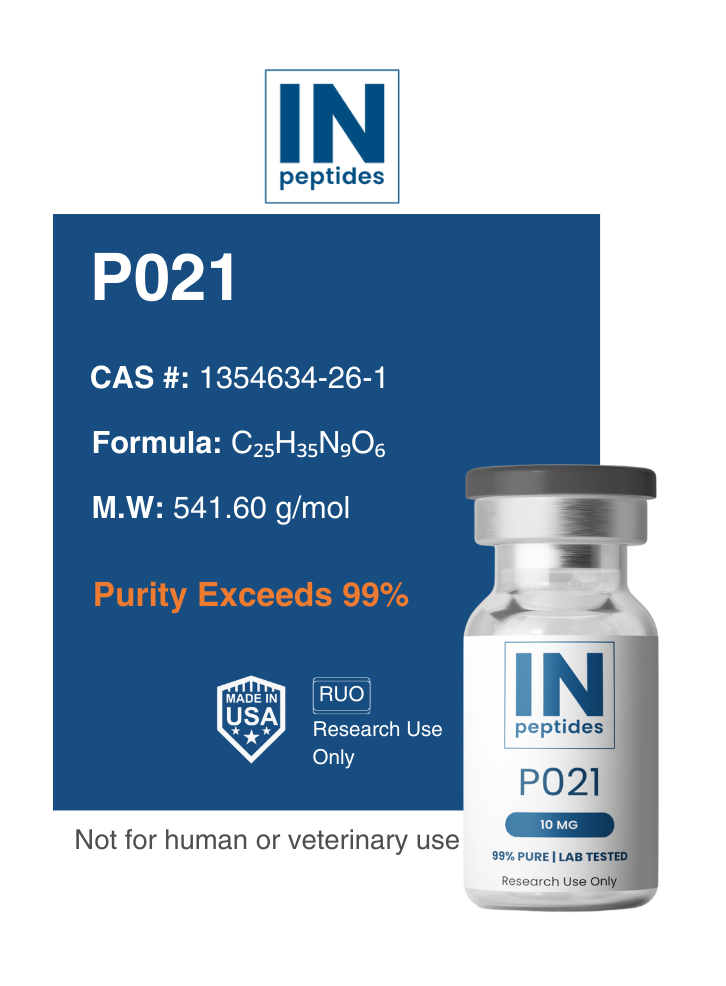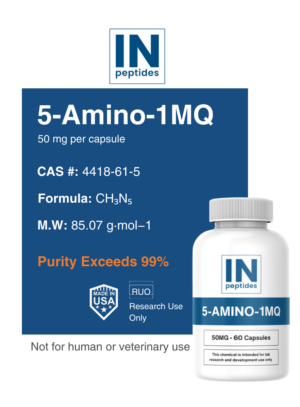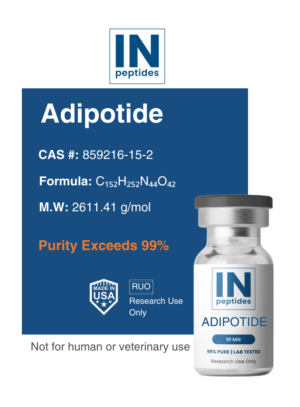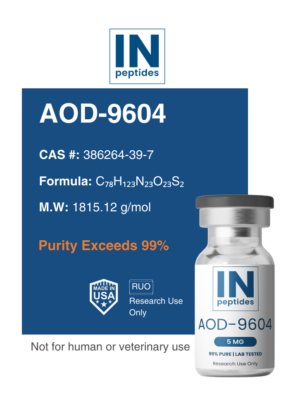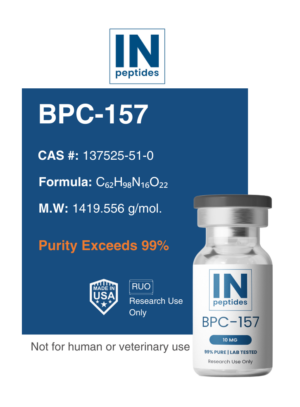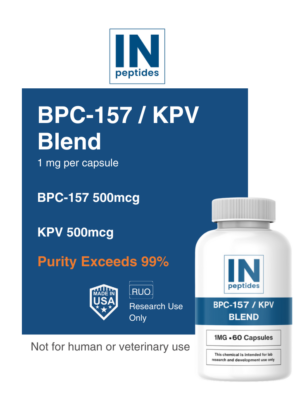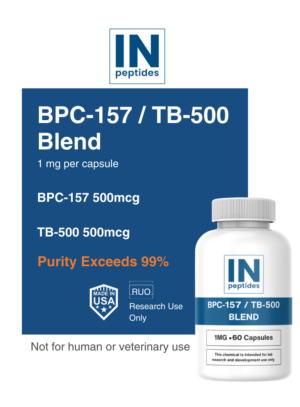P021 – 10mg
$200.00
P021
P021 is a synthetic peptide derived from the human protein Proline-Rich Peptide 1 (PRP1), which is involved in regulating cellular processes such as growth, differentiation, and response to stress. P021 has been investigated for its potential to enhance muscle regeneration, promote tissue repair, and support overall cellular health.
Potential Research Applications
P021 is currently being explored in research settings for its role in:
- Muscle Regeneration & Repair: Investigated for its potential to accelerate muscle healing and regeneration after injury or stress, making it of interest in athletic and clinical settings.
- Tissue Repair & Recovery: Researched for its ability to support the repair and recovery of tissues, particularly in cases of trauma, strain, or surgical recovery.
- Anti-Aging & Cellular Health: Studied for its effects on promoting cellular longevity and overall tissue health, potentially slowing age-related degeneration in muscle and connective tissues.
- Performance Optimization: Explored for its ability to improve recovery times, enhance physical performance, and promote muscle growth in response to exercise.
- Joint & Connective Tissue Support: Investigated for its potential benefits in maintaining joint health and preventing wear and tear from repetitive stress.
✔ High-Quality Research Peptide – Produced under stringent quality control standards.
✔ Lab-Tested for Purity – Ensures consistency for scientific studies.
✔ Research Use Only – Not for human consumption or medical applications.
✔ Peptides – Will arrive in a lyophilized (powder) form for maximum stability.
The peptides are available for research and laboratory purposes only. Please review and ahere to our Terms and Conditions before ordering.
- Description
- Certificate of Analysis
P021 is a synthetic peptide derived from parathyroid hormone (PTH). It mimics some functions of full-length PTH. However, it has a more targeted effect. Researchers study P021 for bone health and metabolism.
PTH regulates calcium levels. It does this by stimulating osteoclasts to release calcium from bones. It also increases calcium reabsorption in the kidneys. Moreover, it boosts vitamin D synthesis. This change enhances calcium absorption in the intestines.
Similarly, P021 influences bone metabolism in a controlled way. Studies suggest that it stimulates bone formation. This action may help treat osteoporosis. Unlike full-length PTH, P021 mainly targets osteoblasts. It also limits bone resorption.
Beyond bone health, scientists explore P021’s effects on metabolism. It may affect fat distribution and adipose tissue. As a result, it could aid weight management. However, research in this area is still in early stages. Therefore, further studies are needed.
Despite its promise, researchers have not yet determined P021’s full biological effects or long-term safety. Most studies remain in preclinical stages. Future research must confirm its efficacy and risks.
For Research Use Only
No Certificate of Analysis images available for this product.

